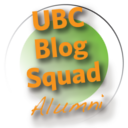This is a post I’m writing with international students particularly in mind, though much of what I say is applicable to domestic students, too.
One of the biggest challenges I faced when I first arrived in Canada and applied for jobs was my lack of local experience and local contacts who were willing to be my references. Now, everyone says that all experience is good experience, but in reality, local applicants are usually preferred over those who have just arrived. For one thing, it’s not that easy to get in touch with references who live sixteen time zones away; not every employer is willing to dial internationally, either, when there are a whole host of equally qualified, local applicants. And unless the job is looking for international applicants or you’re absolutely stellar in some jaw-dropping way — which most eighteen-year-olds are not — you’re going to be passed over.
What can you do to get over this obstacle? A few actions that have helped me over the last few years:
1. Start simple
Apply for entry-level jobs. Build up your basic interpersonal, office or administrative skills if you haven’t already got those. Choosiness isn’t something you can afford in buckets when you’re just starting out — think of these initial jobs as stepping-stones to landing the positions that you’d most like. Another great advantage to many of these entry-level jobs is that they don’t ask for (m)any references — always a plus for international students — and it’s the perfect way to start that list of local experience and contacts.
2. Volunteer
Unlike where I grew up, volunteer experience is definitely something you can put on your resume here in Canada. What matters is not whether the position is paid or unpaid, but what skills you gain from the experience. Volunteering provides many excellent opportunities to build those basic skills you need to get a job, and demonstrates a certain initiative and commitment on your part (as long as you keep it up). This is also another excellent way of gaining local references.
That said, do make the effort to volunteer for something you believe in. Volunteering just for the sake of putting it on your resume when your heart isn’t in it only detracts from the whole experience and does a disservice to those you are meant to be helping. AMS Volunteer Connect is a great service that can help you find volunteer opportunities you’re interested in.
3. Start soon
It takes time to build up solid references and to gain the experiences that really will be useful to you resume-wise. Get involved in the activities that interest you. Don’t put it off for later; time flies and you don’t want to graduate with an empty resume, particularly when the people around you are filling theirs.
4. Learn how to write a resume
When I first arrived, I certainly had no idea what a resume looks like, let alone a good resume. UBC Career Services offers dozens of free workshops, resume clinics and advising to UBC students. Take advantage of these while you can and learn what is expected in the local job market.
Fun (and little-known) fact: UBC graduates can continue to access Career Services for free up to a year after graduation. So if you’re struggling in the ‘cesspool of unemployment’, as one of my recently graduated friends put it, don’t be afraid to ask for a little help!


